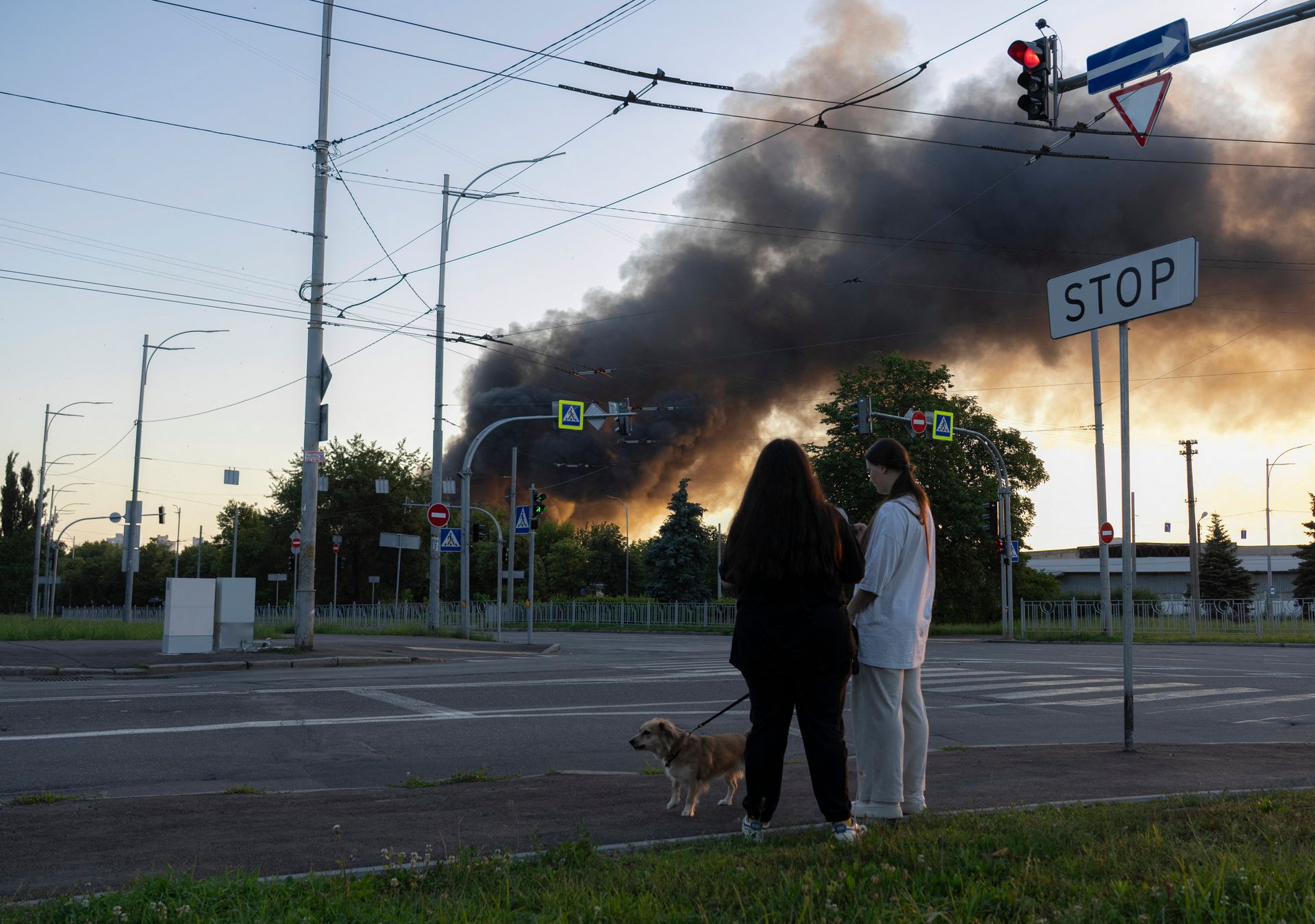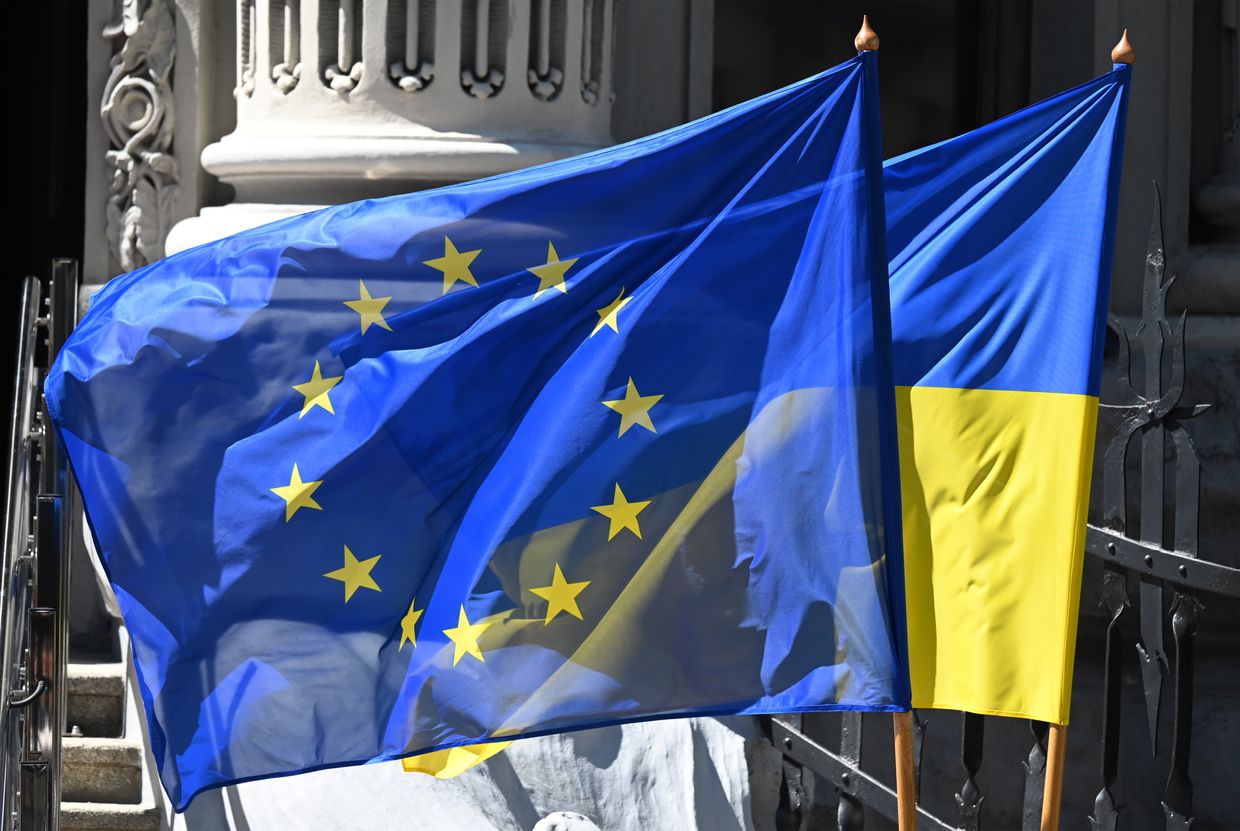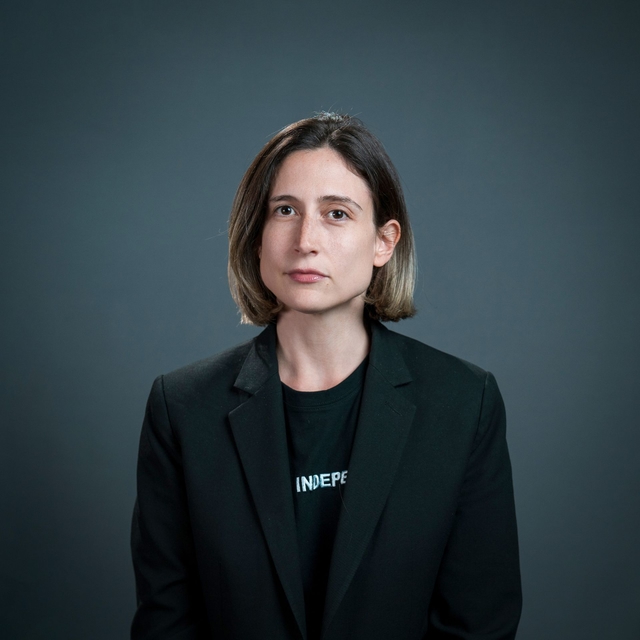Zelensky's big blunder, explained
Why did Zelensky attack independent anti-corruption agencies while his country is fighting a war for existence?

Ukrainian President Volodymyr Zelensky and Italian Prime Minister Giorgia Meloni (not pictured) during a joint press conference at the Ukraine Recovery Conference 2025 (URC2025) at Roma Convention Center La Nuvola, on July 10, 2025 in Rome, Italy. (Antonio Masiello/Getty Images)
For many who came to know Ukrainian President Volodymyr Zelensky only after Russia's full-scale invasion on Feb. 24, 2022, the president's recent move on anti-graft agencies was jarring.
In the early days of the invasion, Zelensky gained hero status after refusing to evacuate as Russian forces closed in on Kyiv. His daily addresses and global appeals rallied Western support and helped secure the military and financial aid that have kept Ukraine afloat. To much of the world, Zelensky became the face of Ukrainian resistance.
But now, he appeared to be undermining the very institutions meant to safeguard Ukraine’s democracy, even as the country fights for its survival.
The decision to rapidly push through legislation weakening the independence of the National Anti-Corruption Bureau (NABU) and the Special Anti-Corruption Prosecutor’s Office (SAPO) — both key reform institutions established after the EuroMaidan Revolution — has left many questioning Zelensky’s motives, even if the move has since been partially reversed following fierce backlash in Ukraine and abroad.
More than three years into the war, Zelensky and his team have gained significant control over the state while maintaining strong domestic and international support. Though centralizing power in wartime is common, their recent moves are seen by some as overreach by a group increasingly convinced it alone should call the shots in the country.
"Since they now associate themselves so closely with the country, they no longer differentiate between their interests and the national interest," a top official who works closely with the administration told the Kyiv Independent.
"There’s this: 'Ukraine c'est moi, c'est nous' ('Ukraine is me, is us'),” the official added, in a reference to Louis XIV’s absolutist creed, "L’État, c’est moi" — "I am the state."
Speaking to journalists on July 24, Zelensky admitted there "should have been a dialogue" on the NABU and SAPO changes, but defended the move as necessary amid war, calling Russia the “main enemy.” He had initially claimed the changes to the agencies aimed to root out Russian influence — an explanation that doesn’t hold up under scrutiny.
Instead, some in Ukraine point to the timing of the move, noting that NABU and SAPO had begun closing in on various figures close to the president and his inner circle. That inner circle is a tight group of advisors and officials Zelensky has entrusted to run the government alongside him, in his own words, his "managers" — chief among them Andriy Yermak, head of the Presidential Office.
"The main reason given is an attempt to control NABU and fears it might pursue politically damaging investigations," political analyst Volodymyr Fesenko told the Kyiv Independent.
Recent probes involving Zelensky's close associates included former Deputy Prime Minister Oleksiy Chernyshov and, reportedly, his friend and former business partner Timur Mindich. According to Ukrainska Pravda, NABU also raided the former deputy head of the president's office, Rostyslav Shurma’s Munich apartment on July 15.
For a group accustomed to making decisions unilaterally during wartime, an attack on its inner circle may have been perceived as a threat to its entire system of control and governance.
Political analyst Mykola Davydiuk also believes Zelensky aimed to shield himself and allies from investigations, while testing how far society would tolerate power grabs to strengthen his authority.
"But stronger for what? To fight Russia, you need democracy and anti-corruption, not autocracy," he said.
Fighting corruption was central to Zelensky’s 2019 presidential campaign. Shortly after taking office, he met with NABU and SAPO leaders, setting a three-month deadline for progress in key cases. In September 2019, he urged Ukrainians to report bribery by sharing NABU’s hotline during a public address.
But similar to his predecessor Petro Poroshenko, in time, the Zelensky administration also began to draw criticism for its approach to anti-corruption agencies, including delays in key appointments and the transfer of a corruption case involving Zelensky's controversial deputy chief of staff, Oleh Tatarov.
Another reason observers give for the sudden blow to the agencies is simply that they could get away with it, believing their moves would go largely unnoticed in both Washington and Brussels.
On one side of the Atlantic, a Trump administration less focused on Ukrainian governance may have emboldened Kyiv. "The vibe from Washington is not one of institutionalization and great attention to anti-corruption efforts — on the contrary," the official working with Zelensky’s administration said.
But even if Zelensky's team received a warning from the U.S. that the move on the anti-corruption agencies could trigger criticism, "they assumed they could take advantage of the current situation in the U.S., where the White House is distracted and not really focused on Ukraine," Fesenko said.

Meanwhile, European leaders hesitated to criticize Ukraine publicly, wary of appearing unsupportive during wartime. In recent months, the Group of Seven countries have noticeably shied away from making public statements about Ukraine's reform process.
"The Zelensky bubble instead of appreciating that reticence, thought, right okay, we've got a permission structure from Washington, we've got a different kind of permission structure from Brussels and other capitals, so why not do what we want to do?" the official told the Kyiv Independent.
And after weeks of controversial moves — blocking the appointment of a reformer to head the economic crimes bureau, targeting anti-corruption activist Vitaliy Shabunin, and a reshuffle consolidating control — Zelensky and his team may have expected little resistance in pursuing their goals.
Public protests erupted in Kyiv within hours of the announcement. Civil society groups, journalists, and Ukraine's partners issued sharp rebukes. In response, the president's office began walking back its initial plans. A revised bill — purporting to address concerns of Russian infiltration while preserving institutional independence — was rushed into circulation.
"The original draft (law) was clearly a mistake,” Fesenko said. "Its flaws and negative consequences were predictable — it’s surprising the President’s Office didn’t anticipate this."
But those who spoke to the Kyiv Independent stopped short of calling Zelensky personally corrupt, instead framing the events of recent weeks as a political miscalculation.
If some members of parliament who voted for the bill had their own reasons — one perhaps being that NABU had open criminal cases against dozens of them — observers point rather to a president surrounded by loyalists who have become convinced that they alone can — and should — navigate wartime governance, including deciding who can be investigated.
Even if Zelensky and his team have begun to see themselves as inseparable from the state, "you cannot measure the state by one person," Davydiuk says.
"People are dying in defense of democratic values — the young people who took to the streets in protest — they’re not corrupt — they want to build a clean, democratic state that belongs in the EU," according to Davydiuk.
"That is the face of Ukraine — not Zelensky."
The Kyiv Independent’s deputy chief editor Oleksiy Sorokin contributed to this story.












